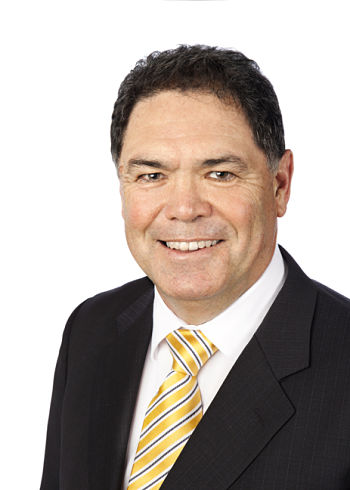Chief Secretary’s Building, which houses the NSW Industrial Relations Commission.
Pic: Supplied.
Barrister Peter Kite SC has been appointed as the NSW Industrial Relations Commission‘s (IRC) first Chief Commissioner after the Supreme Court swallowed up the Commission’s judicial functions last year.
The IRC was pitched into controversy late last year after the state government decided to move its judicial functions from the Industrial Court to the Common Law Division of the Supreme Court, justifying it by saying the Industrial Court’s workload had fallen dramatically in the past decade from 766 matters in 2005 to 35 matters in 2015.
The government attributed the reduction in litigation to the introduction of the national workplace relations system and changes which saw work health and safety prosecutions transferred to the NSW District Court in 2010.
The Industrial Relations Amendment (Industrial Court) Bill 2016, which brought the changes into effect in November 2016, created a new Chief Commissioner to lead the IRC, bringing the number of commissioners to five, and moved the sole judge of the IRC’s Industrial Court, Justice Michael J Walton, to the Supreme Court.
The government maintained the changes would make the process more efficient and allow litigation to be presided over by a more diverse range of judges.
But some criticised the Supreme Court move, saying it would make cases more expensive and more intimidating for plaintiffs. Unions NSW argued that the Supreme Court was more used to hearing commercial or criminal cases, not industrial.
Greens MP and former barrister David Shoebridge said at the time that the integration was “killing a specialist industrial tribunal through death by a thousand cuts”.
Peter Kite SC, New Chief Commissioner of the NSW
Industrial Relations Commission. Pic: supplied.
The IRC has non-judicial functions like the arbitration of industrial disputes and setting wages and conditions of employment and judicial functions, such as determining unfair dismissal cases and underpayment of wages and superannuation appeals.
It is an important body in NSW because it affects the employment pay and conditions of public servants like teachers, council workers, doctors in public hospitals, paramedics, nurses and police.
NSW Premier Gladys Berejiklian will be hoping that the government can put past controversies behind it with the appointment of Mr Kite, who started his new job this week.
Treasurer and Minister for Industrial Relations Dominic Perrottet said Mr Kite brought a wealth of experience to the job.
“Peter has been a senior industrial relations practitioner for more than three decades, and has served as Acting Deputy President of the IRC of New South Wales and Acting Judge of the Industrial Court of New South Wales,” Mr Perrottet said.
“I have no doubt he will make a valuable contribution in leading the IRC here in NSW, and I wish him all the best in this role.”
Mr Kite’s experience includes more than 30 years as a barrister specialising in industrial law and unfair contracts. He is also an accredited mediator with the NSW Bar Association.
The Chief Commissioner will lead the IRC’s operations in resolving industrial disputes and settling employment conditions and remuneration for employees, primarily in the NSW public sector and local government.
The role of Chief Commissioner replaces the former role of President of the IRC.






Leave a Reply